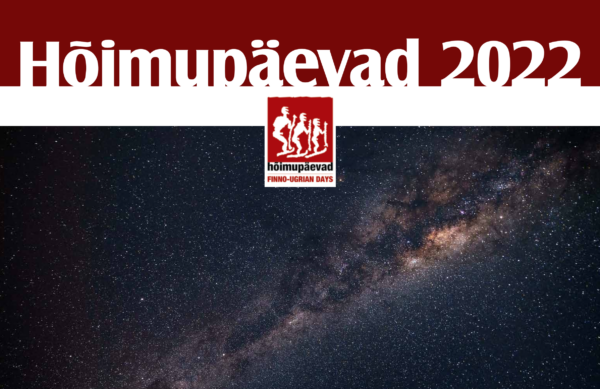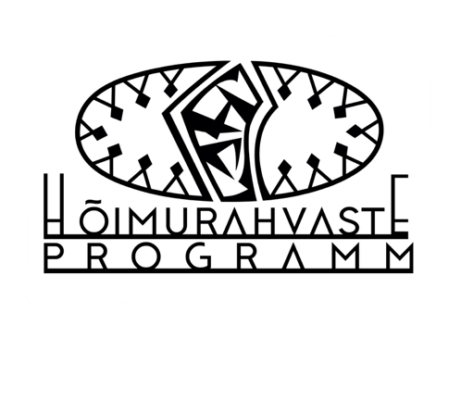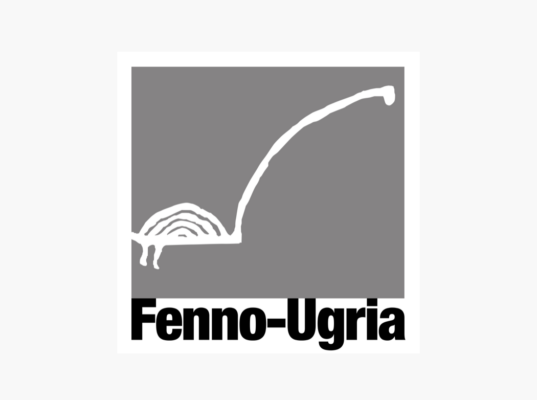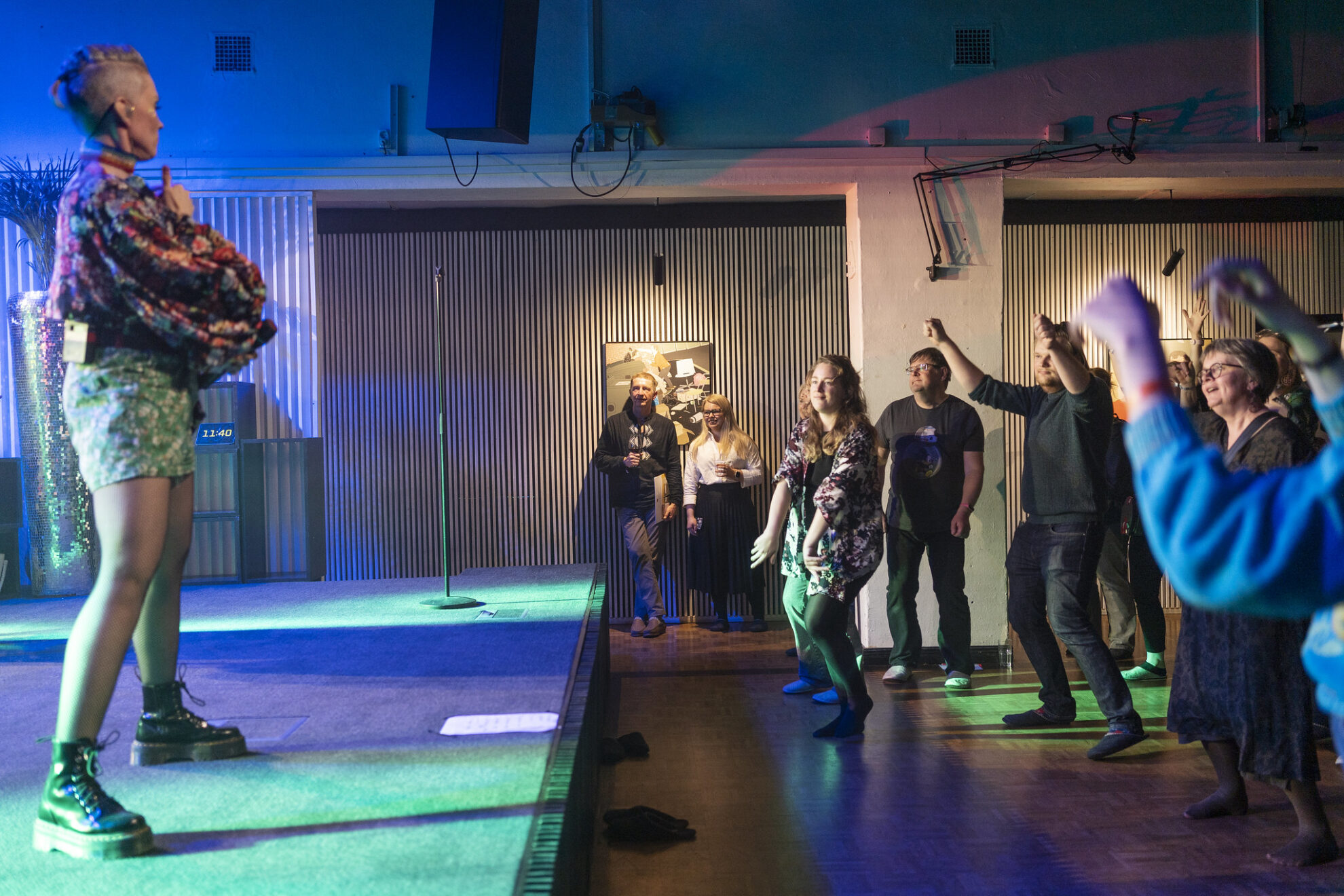
♫ 2022
The Fenno-Ugria Night will also kick off the International Decade of Indigenous Languages in Estonia, which values small and endangered languages.
The TMW Fenno-Ugria Night1 reveals the genuine charm of the musical heritage of Estonians and other Finno-Ugric peoples. Rooted in tradition, these musicians sing and play authentic instruments, creating connections between the past and the present through vivid rhythms, captivating improvisations and diverse, bright soundscapes. This event will also kick off the United Nations International Decade of Indigenous Languages (2022–2032) in Estonia, which values small and endangered languages.
Whilst RÜÜT interpret Estonian chants, then the project Sounds and Stories from Ruhnu Island (Ruhnu saare lood ja laulud) revives the vibrant traditional music of the Swedes who lived on the island and Ilkka Heinonen introduces the wide sound spectrum of the ancient Finnish instrument jouhikko. The sound of endangered indigenous languages is brought to the stage by Sámi musician Katarina Barruk and Latvian singer Elīna Ose with songs based on Livonian poetry. Góbé experiments boldly and merrily with authentic Hungarian folk, and Suistamon Sähkö catapults old Karelian dance songs to a whole modern club era.
18:00 Doors
18:30 Ruhnu saare lood ja laulud (EE)
19:20 Ilkka Heinonen (FI)
20:10 Rüüt (EE)
21:00 Katarina Barruk (NO)
21:50 Kuolm randõ (LV)
22:40 Góbé (HU)
23:30 Suistamon Sähkö (FI)
The concert project Sounds and Stories from Ruhnu Island (Ruhnu saare lood ja laulud) is an interpretation of Ruhnu peoples’ musical heritage, the island’s history and village stories. Fiddlers Karoliina Kreintaal, Lee Taul and Sänni Noormets have been discovering colours, rhythms, and unique melodies of traditional Ruhnu Swedish music for almost a decade now. The musical landscapes born from this fascination were formed into a debut album The Many Points of Ruhnu (2019).
Soon after, Kairi Leivo joined their gigs as a storyteller to give an even fuller experience to the listener, sharing stories of the island’s life and its people. These stories form a timeline starting from the historic islanders who escaped the war in 1944 to modern island life.
“It speaks to my soul even if it is of a place I have never been to in a language I do not know.” — Tom Sherlock, Ireland
The ancient sound of Jouhikko (bowed lyre) meets the music of Renaissance Palaces.
Ilkka Heinonen is filtering the music of old jouhikko masters from Karelia through medieval chants, Russian old believers’ songs, and European secular dances of Renaissance – presenting an unprecedented sound spectrum of the jouhikko.
Ilkka Heinonen is a Helsinki based musician and a composer playing jouhikko (Finnish/Karelian/Estonian bowed lyre), double bass and violin. Heinonen is specialized in North European traditional music cultures but has also been working actively in early music and contemporary music scenes.
Estonian ensemble RÜÜT represents new and diverse folk music. Their thorough and precise arrangements are based on old Runo Songs and instrumental tunes. RÜÜT dares to experiment, break boundaries, search for new sounds and clever solutions, and wish to explore untouched parts of themselves in their music.
Although their music is based on Estonian traditional music, the band keeps their doors open to not limit themselves with a specific genre. This philosophy means that every piece has its own character, taking the listener on a journey through different soundscapes. RÜÜT has released two albums and the third one is in the making.
Katarina Barruk, born in 1994, is known as one of Sábmie’s most talented live artists. She is raised in Lusspie (Storuman) and Gajhrege (Gardfjäll), but is currently based in Oslo. Over the last decade Katarina has toured through Europe, giving highly appreciated concerts. In 2020 she received one of the most eligible writer and composer prizes in Sweden – “SKAPs Kulturbärarpris”. Barruk’s unique, distinctive voice, in combination with a steadfast presence on stage creates a space of vulnerability and strength that is unlike anything else. She delivers a fierce, yet deeply down-to-earth, mix of pop music, traditional yoik and improvisational elements. Katarina sings in her mother tongue, Ume Sámi language. The language is on UNESCO’s red list of critically endangered languages, but many Umes Sámis are taking the language back.
Budapest-based Góbé creates contemporary and entertaining folk-pop music. Established in 2007, the band members have studied at the Liszt Ferenc Academy of Music so their range of tools includes classical, folk, jazz and pop but they are also keen to explore other genres from blues to dubstep and artforms such as theatre, circus, dance and film scores. Ther create novel soundscapes by challenging the technical limits of their acoustic instruments.
The band plays in smoky pubs, dance halls, camps, streets, at weddings or wherever they get the chance. They have travelled across half of Europe and performed at almost every popular music venue in Carpathian Basin. Their aim is to to make music accessible for everybody and introduce audiences to the culture that lies behind their songs.
„Kuolm randõ“ (Three Shores) is a unique Livonian concert program that combines music, poetry and visual background. Livonian is the most endangered Finnic language, included also in the UNESCO list of endangered languages. In 2018, the Livonian-English poetry collection “Trilium” was published. Music was created for the texts of three contemporary Livonian poets (Valts Ernštreits, Baiba Damberga, Ķempi Kārl) in 2018. An updated collection of poems was published in 2020 with Estonian and Latvian translations. The concert program includes music, poetry texts with translations and visual scenes. Soloist Elīna Ose is a well-known Latvian singer and songwriter. Since 2009, she has been a member of the music group Latvian Voices, which has participated in high-level a cappella music festivals and competitions. She will perform in the Livonian concert program with Latvian musicians Austris Kalniņš, Staņislavs Judins, Kristaps Krievkalns and Ernests Mediņš.
Genre breaking Suistamon Sähkö cheerfully ties ethno, techno and smoke shack sounds to the world of hip hop. Their boisterous rave atmosphere, synthesizer buzz, rap declarations, soviet accordion shake the floor and make the audience jiggle. The band has become known for their expressive performances and visual world, that places importance on dance, costumes and visuals. Suistamon Sähko’s audience is a rare mixture – through them mutual fields of energy have been discovered by people with various backgrounds, all generations and genders.
The group’s well-received third album Varokaa! Hengenvaara (2021) is both the most accessible and the wildest material the group has ever published. The album has been described as an energizing explosion of bold hip hop and ethno-techno.
In addition to Finnish stages, Suistamon Sähkö has sparked international arenas in Germany, France and Russia. During their short existence, the group has published three albums and a dozen music videos which have attracted much attention. Suistamon Sähkö was selected as the opening act of the Womex Tampere 2019 and the showcase act of the Folk Alliance International USA 2020.
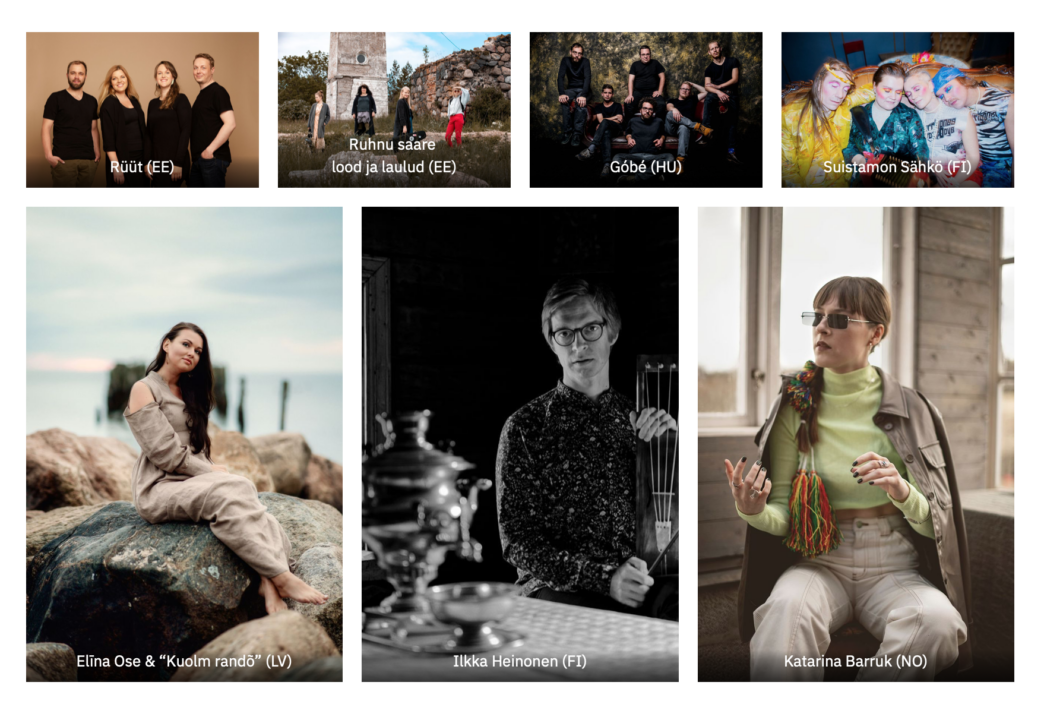
1 TMW Fenno-Ugria Night is a unique opportunity to listen to the latest music based on the musical heritage of Estonians and other Finno-Ugric peoples on one stage and introduce it to experts from all over the world and to the home audience.

